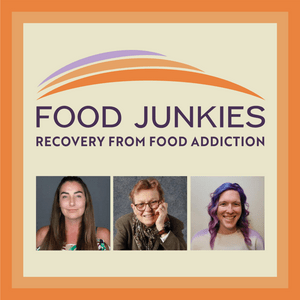In this powerful and heartfelt episode of the Food Junkies Recovery Stories CJ sits down with Joy M, who shares her courageous story of unraveling the illusion of the “perfect life” to find true recovery and emotional freedom. From childhood trauma and food obsession to substance use, codependency, and the sneaky nature of sugar addiction, Joy takes us through the winding—and at times wild—path she walked to reclaim her health and voice. Tune in to hear how one Easter basket sparked a lifetime pattern, how trauma flipped the switch, and how Joy finally broke free through community, curiosity, and a whole lot of compassion. Her story is a beautiful reminder that it’s never too late to begin again—and that healing is possible, one real food choice at a time. Warning: You may leave this episode feeling inspired, understood, and ready to toss those “dang nuts.” Feel free to join our supportive community on Facebook: Sugar-Free for Life Support Group - where we believe "I'm Sweet Enough." If you're considering personalized assistance, CJ, a Certified Addiction Professional specializing in Food Addiction, is here for one-on-one coaching. Reach out to CJ at
[email protected] Interested in sharing your recovery story on our show? We'd love to hear from you! Please email
[email protected] If you find inspiration in recovery narratives, you won't want to miss the Food Junkies Podcast. Check it out at https://www.foodjunkiespodcast.com/.
